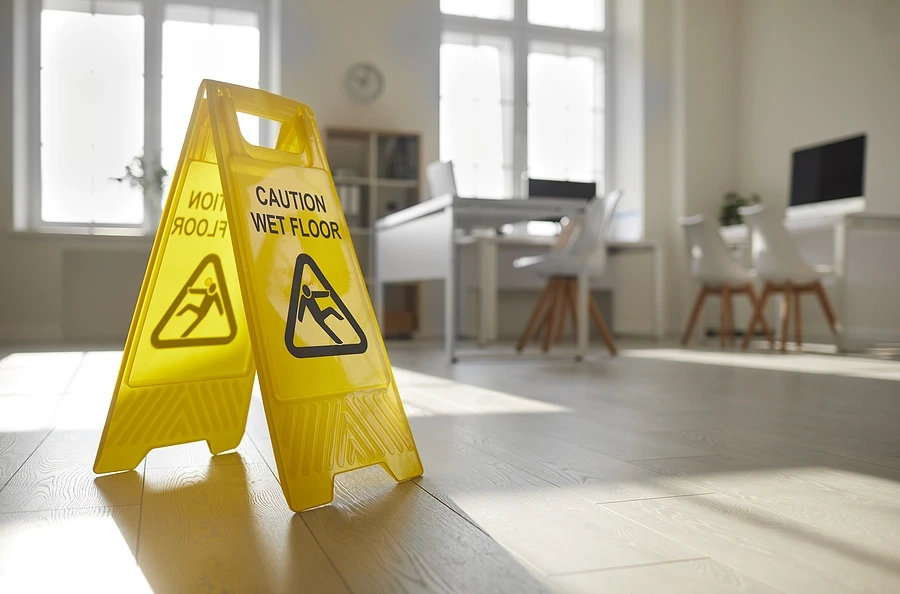Slip and Fall Lawyer Maitland

Slip and fall injuries can happen anywhere and often occur due to unsafe property conditions. If you’ve been hurt in a slip and fall accident in Maitland, you may have grounds for a legal claim. Weston & Pape is here to help you understand your options and pursue justice. Contact us at 561-821-3898 for a free consultation with a slip and fall lawyer who will advocate for your recovery.
Can You Sue a Landlord for Slip and Fall Accidents?
Slip and fall accidents can happen anywhere, but when they occur on rental properties, questions often arise about the liability of the landlord. If you’ve been injured in a slip and fall accident on a rental property, you may wonder if you have the right to sue your landlord for compensation. The answer depends on several factors, including the circumstances of the accident, the landlord’s responsibility, and the condition of the property.
In Florida, landlords have specific obligations to maintain their properties in a reasonably safe condition. However, whether a landlord can be held liable for a slip and fall accident depends on whether they breached their duty to maintain a safe environment and if that breach directly caused your injury.
Landlord Responsibilities Under Florida Law
Florida law requires landlords to ensure their rental properties are safe and free from hazards. While tenants are responsible for some aspects of property upkeep, landlords must address issues that may pose a risk to their tenants’ health and safety. Some common landlord responsibilities include:
- Maintaining Common Areas
Landlords are generally responsible for maintaining common areas such as hallways, stairwells, parking lots, and sidewalks. If these areas are poorly lit, have uneven surfaces, or contain hazards like spills or debris, the landlord may be held liable if a slip and fall occurs. - Repairing Known Hazards
If the landlord is aware of dangerous conditions, they must take steps to repair or warn tenants about those hazards. For example, if the landlord knows that the stairs are loose or the floor is slippery but does not address the issue, they may be responsible for any injuries resulting from these conditions. - Responding to Tenant Complaints
Landlords are also required to respond to tenant complaints about safety hazards promptly. If a tenant notifies the landlord about a dangerous condition and the landlord does nothing to fix it, the landlord may be liable if an accident occurs as a result.
When Can a Landlord Be Held Liable for a Slip and Fall?
To hold a landlord liable for a slip and fall accident, you must prove that the landlord was negligent in maintaining the property and that their negligence directly caused your injury. Several key elements must be established to make a successful claim against a landlord:
- Knowledge of the Hazard
One of the first things you’ll need to show is that the landlord knew or should have known about the hazardous condition. This can be demonstrated through maintenance records, complaints made by tenants, or the fact that the hazard was present for a long time without being addressed. - Failure to Address the Hazard
The landlord must have had a reasonable amount of time to fix the hazard or warn tenants about it but failed to do so. If the landlord was aware of the problem but didn’t take action, such as fixing a broken handrail or cleaning up a spill in a timely manner, they may be considered negligent. - Injury Resulting from the Hazard
You must prove that your injury occurred as a direct result of the hazard that the landlord failed to fix. For example, if you fell on a wet floor because the landlord didn’t fix a leaking pipe, the landlord may be liable for your injuries.
Common Slip and Fall Hazards on Rental Properties
There are many types of hazards that can lead to slip and fall accidents on rental properties. Some common examples include:
- Wet or Slippery Floors
A spilled liquid, leaky pipes, or cleaning agents left on the floor can create dangerous slip hazards in kitchens, bathrooms, and hallways. Landlords must maintain floors in good condition and take prompt action to clean up spills or repair leaks. - Uneven or Cracked Sidewalks
Cracked or uneven sidewalks around the property can cause people to trip and fall. If the landlord is aware of these issues and doesn’t fix them, they could be held liable for any accidents that occur. - Poor Lighting in Hallways or Stairs
Insufficient lighting in common areas or stairwells can lead to falls. Landlords are responsible for ensuring adequate lighting to prevent accidents, especially in areas where tenants walk frequently. - Icy Walkways
In colder climates, icy walkways can be a significant hazard. In Florida, this may not be as common, but landlords in areas that do experience freezing conditions are required to clear ice and snow promptly. - Loose Handrails or Stairs
Stairs that are in disrepair or have loose handrails present a serious risk for falls. Landlords must ensure that these elements are properly maintained and repaired when needed.
What to Do If You’ve Been Injured in a Slip and Fall Accident
If you’ve been injured in a slip and fall accident on a rental property, there are several steps you should take to protect your legal rights and increase your chances of a successful claim:
- Seek Medical Attention
Your health and safety should be your top priority. Seek medical treatment right away, even if you feel that your injuries are minor. Some injuries, like concussions or soft tissue damage, may not be immediately apparent. - Document the Scene of the Accident
If possible, take photos of the hazard that caused your fall. For example, photograph wet floors, broken stairs, or poorly lit areas. Try to capture the location and condition of the hazard to show that it contributed to your accident. - Report the Incident to the Landlord
Notify your landlord about the accident as soon as possible. In writing, report the details of the incident and the hazard that caused it. This creates a record of your complaint, which can be useful if you decide to pursue a claim. - Collect Evidence
In addition to documenting the scene, gather any evidence that can support your claim. This may include witness statements, medical records, and any previous complaints made to the landlord about the hazardous condition. - Consult with a Personal Injury Attorney
If you believe the landlord may be at fault, it’s essential to consult with a personal injury attorney. An experienced lawyer can help you understand your legal options, gather evidence, and negotiate with insurance companies on your behalf.
Defenses Landlords May Use Against Liability
Landlords may try to avoid liability by claiming certain defenses. Some common defenses landlords may raise include:
- No Knowledge of the Hazard
The landlord may argue that they were unaware of the hazard that caused the fall. In this case, your attorney will need to demonstrate that the hazard was obvious or had been present for a long period. - Contributory Negligence
The landlord may claim that you were partially responsible for the accident. For example, if you ignored a posted warning sign or were not paying attention when the accident occurred, the landlord might argue that your own actions contributed to the fall.
Personal Injury Attorney for Slip and Fall Cases in Maitland
Slip and fall injuries may seem minor at first, but they can lead to lasting pain and expenses. When a property owner’s negligence leads to your injury, a personal injury attorney can help hold them accountable. Weston & Pape is proud to represent slip and fall victims in Maitland. Reach out at 561-821-3898 to schedule a free consultation and learn how we can assist with your case.

 Call Us Today - It's Free
Call Us Today - It's Free